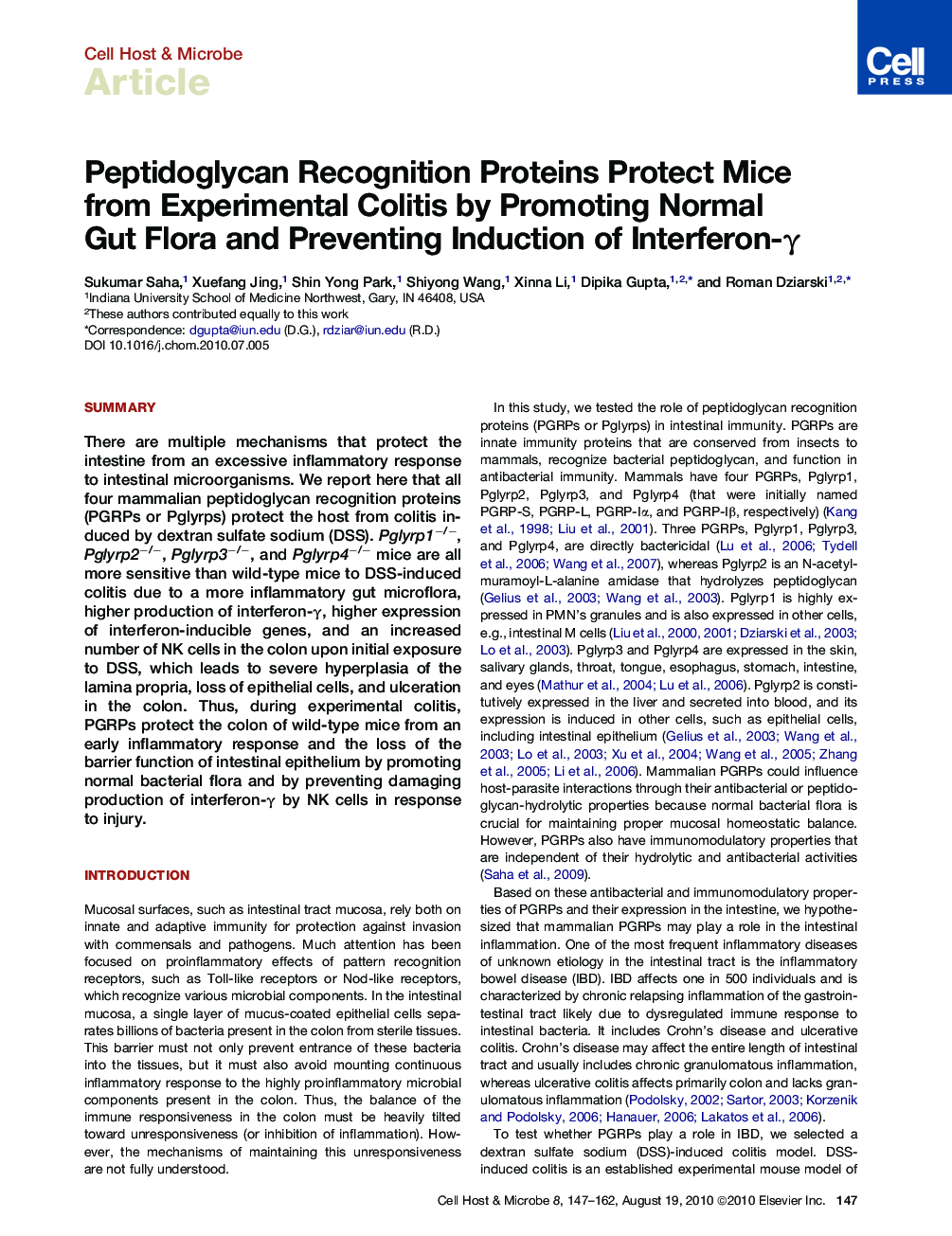| Article ID | Journal | Published Year | Pages | File Type |
|---|---|---|---|---|
| 4361361 | Cell Host & Microbe | 2010 | 16 Pages |
SummaryThere are multiple mechanisms that protect the intestine from an excessive inflammatory response to intestinal microorganisms. We report here that all four mammalian peptidoglycan recognition proteins (PGRPs or Pglyrps) protect the host from colitis induced by dextran sulfate sodium (DSS). Pglyrp1−/−, Pglyrp2−/−, Pglyrp3−/−, and Pglyrp4−/− mice are all more sensitive than wild-type mice to DSS-induced colitis due to a more inflammatory gut microflora, higher production of interferon-γ, higher expression of interferon-inducible genes, and an increased number of NK cells in the colon upon initial exposure to DSS, which leads to severe hyperplasia of the lamina propria, loss of epithelial cells, and ulceration in the colon. Thus, during experimental colitis, PGRPs protect the colon of wild-type mice from an early inflammatory response and the loss of the barrier function of intestinal epithelium by promoting normal bacterial flora and by preventing damaging production of interferon-γ by NK cells in response to injury.
Graphical AbstractFigure optionsDownload full-size imageDownload high-quality image (327 K)Download as PowerPoint slideHighlights► Peptidoglycan recognition proteins (PGRPs or Pglyrps) protect mice from DSS-induced colitis ► Pglyrp1−/−, Pglyrp2−/−, Pglyrp3−/−, and Pglyrp4−/− mice are sensitive to DSS colitis ► They develop hyperplasia of lamina propria, loss of epithelium, and ulceration ► Pglyrps control normal gut flora and limit production of IFN-γ by NK cells
